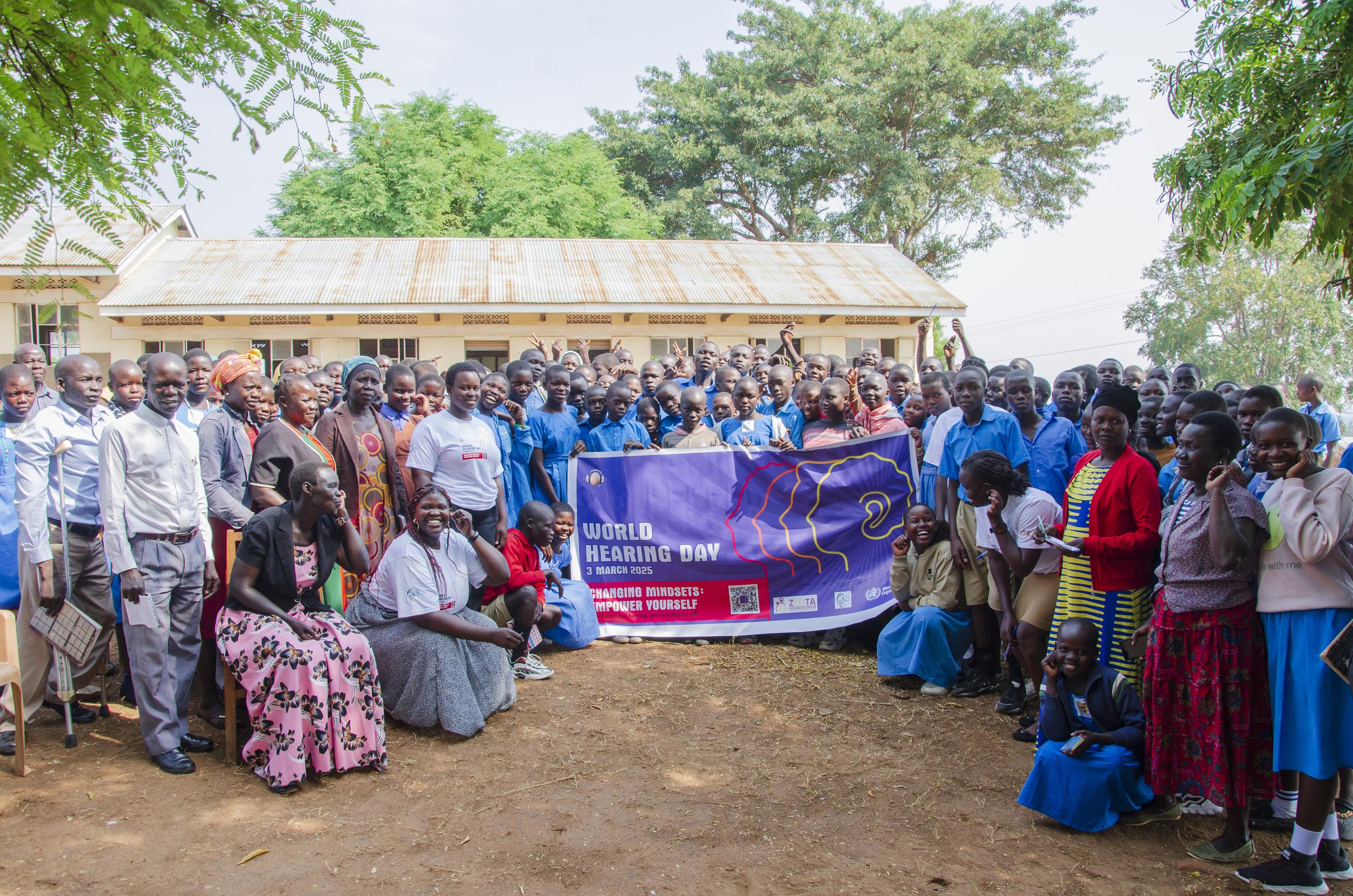Welcome! Check out our latest podcast!
Click here
Empowering Young Minds on Hearing Health: What Your Ears Want You To Know Event.
On March 3rd, 2025, Zoota Initiative for Development, with support from the World Health Organization (WHO), the World Hearing Forum, the World Hearing Day Org, and the Coalition for Global Hearing Health (CGHH), hosted a World Hearing Day awareness session at Ringili Primary School in Arua District, Uganda. The event focused on raising awareness about ear care and hearing health among young people and advocating for better ear care services in rural communities.

Miss Adania leading the session on ear care and hearing health with the students
The theme for this year’s World Hearing Day, “Changing Mindsets: Empower Yourself to Make Ear and Hearing Care a Reality for All”, was at the heart of our session. With 479 students and teachers in attendance, the session provided critical information on how to protect hearing, common causes of hearing loss, and preventive measures.

Students attending the awareness session
Hearing health is often overlooked, yet it plays a vital role in a child’s education and overall well-being. According to the World Health Organization (WHO);
In Arua, there is only one ENT specialist at Arua Regional Referral Hospital, making access to specialised ear care a challenge. This highlights the urgent need for community awareness and policy action to improve hearing health services.

Teachers participating in the awareness session at the school
The session was designed to be interactive, engaging, and informative. Some of the key topics covered included;
Students learned how the ear works and why hearing is essential for communication and learning. Visual diagrams helped explain the outer ear, middle ear, and inner ear functions.
We discussed the dangers of loud music, infections, inserting objects in the ear, and lack of medical checkups. Students were surprised to learn that using earphones at high volume for long periods can cause permanent hearing damage.
Students were encouraged to practice safe listening habits, seek medical attention for ear infections, and avoid putting objects in their ears. A simple rule shared was the 60/60 rule – keep the volume at 60% and listen for no more than 60 minutes at a time.
To make learning fun, we incorporated games, role-playing, and a silent communication challenge to demonstrate the difficulties faced by those with hearing impairments.

Students demonstrating to their colleugues how to clean their ears as taught by Ms. Sophie
The event had a profound impact on both students and teachers. Some immediate outcomes included:

Students during the recarp sharing what they learnt during the awareness session
Despite the success of the event, a few challenges were noted;

The team at Zoota Initiative for Development at the World Hearing Day awareness session event
To ensure long-term impact, we recommend:

Group photo with the teachers at Ringili Primary School
Here’s what some students and teachers had to say about the session:

Group photo with the students and teachers at Ringili Primary School after the Session
A big thank you to the Zoota Initiative for Development team, our partners WHO and CGHH, and the teachers and students who made this event a success. Special appreciation goes to our trainers who delivered insightful sessions and engaged the students in meaningful discussions.
As we move forward, let’s continue to raise awareness, promote safe listening practices, and advocate for better hearing healthcare in rural Uganda. Every child deserves the gift of hearing – let’s protect it together!
#WorldHearingDay #EarCareForAll #HearingHealth #SafeListening #ZootaInitiative